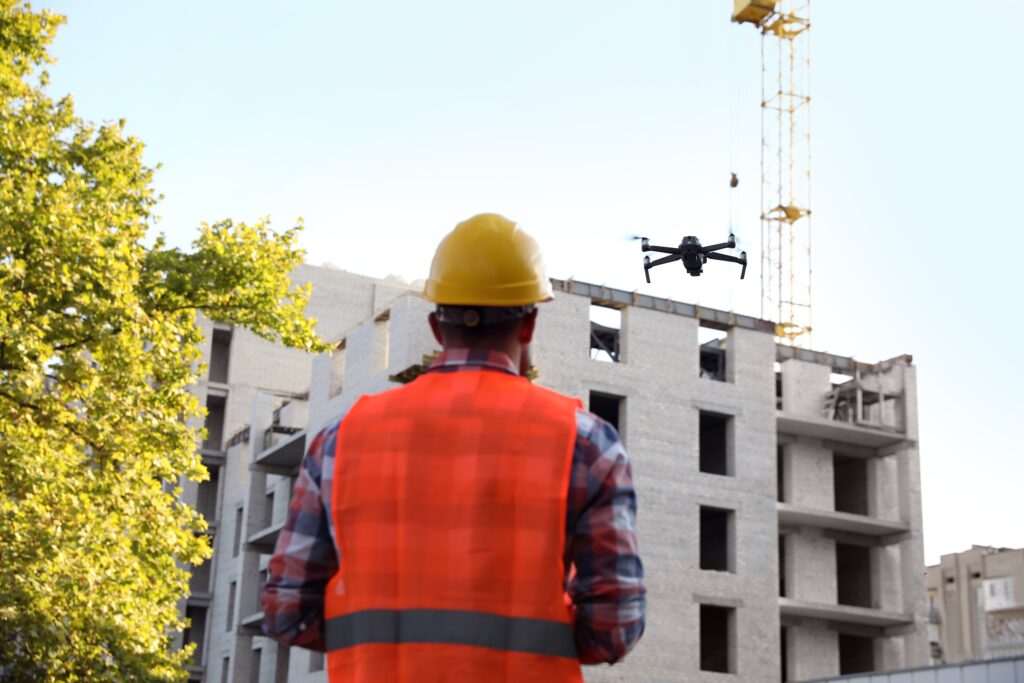Of the one million or so buildings in New York City, 314 have over 40 stories and are considered skyscrapers but more than 14,500 are over the six-story threshold to require a physical inspection of their facade every five years. With the growth of tall buildings around the world, especially in Asian and Middle Eastern Cities, the efficiency, cost, and safety concerns around building inspections has been put under the spotlight. In recent years, however, drone technology has taken off as the leading solution to this growing problem.
In the simplest sense, a camera replaces the inspector’s eyes and the drone it is attached to allows the inspector complete control over their position in the air, giving them new perspectives of the building. In reality, most building inspection drones will be autonomous, scanning the building and then using Artificial Intelligence (AI) to identify potential issues, which offers vast time and cost-saving benefits. Growing attention around the technology has caught the eye of investors in recent years, who have increasingly been putting their money behind AI drone inspection startups.
In March 2021, autonomous drone maker Skydio raised $170M in a Series D funding round led by Andreessen Horowitz’s Growth Fund. Amassing $340 million in total funding the start-up holds a post-money valuation north of $1 billion and into unicorn status. Later that year, Skydio announced its expansion into the enterprise and commercial market with hardware and software tools for its drone technology. This was soon followed by a new partnership with geospatial data analytics EagleView for autonomous residential roof inspections via drone.
In February 2023, Skydio announced a $230 million Series E fundraising round and the construction of a new manufacturing facility in America, claiming a 30x growth over the last three years and the throne of largest drone manufacturer in the US. Then, just last week on August 11th, following the continued success of the enterprise and commercial services, Skydio announced that it is closing its consumer drone business and pivoting completely towards their commercial side.
“Our drones are making the core industries that our civilization runs on — public safety, transportation, energy, construction, and defense — safer and more efficient,” Skydio CEO Adam Bry, writes. “The impact we’re having with our enterprise and public sector customers has become so compelling that it demands nothing less than our full focus and attention.”

Further Drone Funding
Also last week, on August 8th, California-based drone network operator Birdstop raised $2.3 million in new funding for its AI-enabled drone inspection service expansion. Founded by a former Google data scientist and Earth Institute satellite imagery analyst, Keith Miao, Birdstop uses its patented technology to analyze and protect buildings, infrastructure, and other assets with drones. In addition to routine monitoring and inspection, Birdstop’s drones can be mobilized on-demand for extreme circumstances such as natural disasters or security breaches.
“Developments in drone technology and Beyond Visual Line of Sight (BVLOS) regulation over the past decade are allowing Birdstop’s vision to be realized for the first time,” says Andrea Hippeau, partner at Lerer Hippeau. “Birdstop’s ability to generate real-time intel remotely is a huge step forward for the industry.”
In Sweden, one startup is now competing with traditional drones with unmanned airplanes for electricity power infrastructure inspection. Skyqraft received early backing with a $505,000 investment round in 2020 led by “startup generator” and investor Antler, with participation from a number of angels, including Claes Ekström and Tomas Kåberger. Founded in March 2019, Skyqraft provides what it calls “smart” infrastructure inspections using AI-enabled unmanned airplanes, to gather images and detect risk automatically.
“Our competitors are mainly quadcopter drone operators,” said Turabali. “And they inspect only the transmission grids. We on the other hand, offer our customers a full service and inspect both transmission and distribution grids also using our machine learning system to detect any threats automatically.”
The days of building inspectors hanging from ropes, or infrastructure inspectors in helicopters, appears to be behind us as unmanned aircraft rise to dominate the market. Drones aren’t just flying inspectors, however, they can also be equipped with a range of advanced sensing tools such as infrared cameras for thermal and energy performance analysis, or monitoring and tracking capabilities for security applications, which is not offered by the average human building inspector.
Offering vastly superior efficiency and new features at a fraction of the cost and while nullifying the safety issue, drone building inspection is a no brainer for the market and investors are growing increasingly confident in the innovative startups promising to seize the opportunity. New applications in physical security and energy performance would see drones expanding into building operations roles and suggest that the sky’s the limit for this emerging application of technology.



